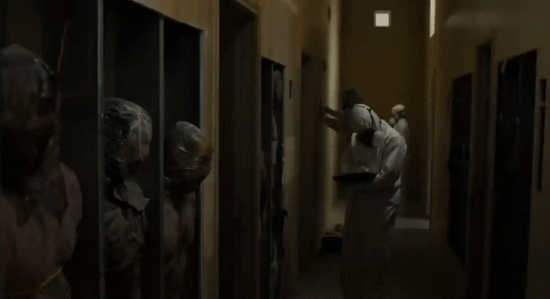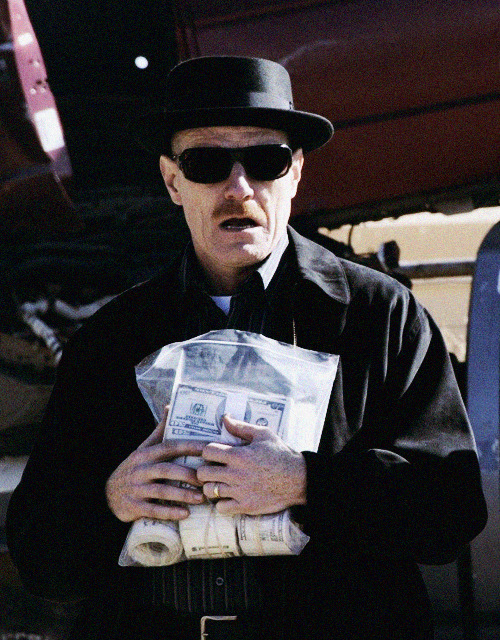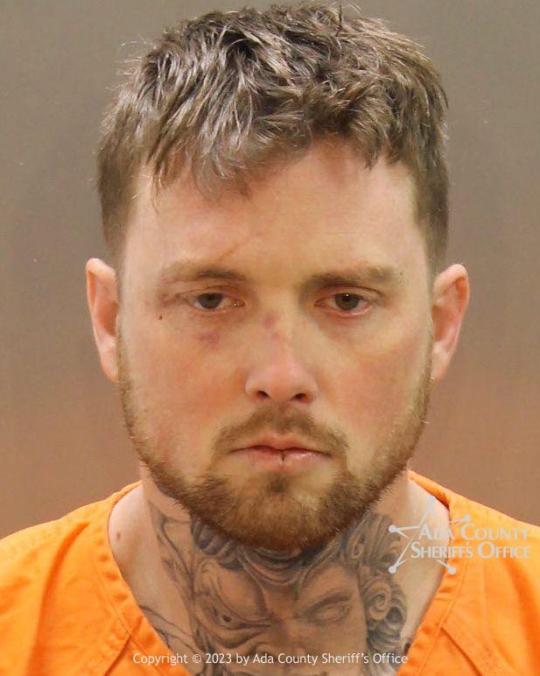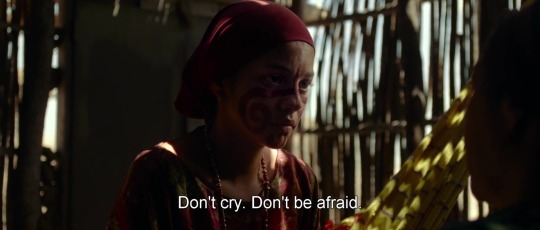#drug trade
Text








‘‘Listen… nothing will make sense to your American ears. And you will doubt everything that we do. But, in the end, you will understand.’’
//sicario/2015/
//dir_denis_villeneuve/
#cinema#sicario#denis villeneuve#emily blunt#benicio del toro#josh brolin#daniel kaluuya#movies#drug trade#thrillers#CIA#FBI#filmmaking#cinematography#i made some GIFs#myGIF
121 notes
·
View notes
Text
The Taliban government in Afghanistan – the nation that until recently produced 90% of the world’s heroin – has drastically reduced opium cultivation across the country. Western sources estimate an up to 99% reduction in some provinces. This raises serious questions about the seriousness of U.S. drug eradication efforts in the country over the past 20 years. And, as global heroin supplies dry up, experts tell MintPress News that they fear this could spark the growing use of fentanyl – a drug dozens of times stronger than heroin that already kills more than 100,000 Americans yearly.
[...]
The Taliban’s successful campaign to eradicate drug production has cast a shadow of doubt over the effectiveness of American-led endeavors to achieve the same outcome. “It prompts the question, ‘What were we actually accomplishing there?!'” remarked Hoh, underscoring:
This undermines one of the fundamental premises behind the wars: the alleged association between the Taliban and the drug trade – a concept of a narco-terror nexus. However, this notion was fallacious. The reality was that Afghanistan was responsible for a staggering 80-90% of the world’s illicit opiate supply. The primary controllers of this trade were the Afghan government and military, entities we upheld in power.”
Hoh clarified that he never personally witnessed or received any reports of direct involvement by U.S. troops or officials in narcotics trafficking. Instead, he contended that there existed a “conscious and deliberate turning away from the unfolding events” during his tenure in Afghanistan.’
Suzanna Reiss, an academic at the University of Hawaii at Manoa and the author of “We Sell Drugs: The Alchemy of U.S. Empire,” demonstrated an even more cynical perspective on American counter-narcotics endeavors as she conveyed to MintPress:
The U.S. has never really been focused on reducing the drug trade in Afghanistan (or elsewhere for that matter). All the lofty rhetoric aside, the U.S. has been happy to work with drug traffickers if the move would advance certain geopolitical interests (and indeed, did so, or at least turned a knowingly blind eye, when groups like the Northern Alliance relied on drugs to fund their political movement against the regime.).”
Afghanistan’s transformation into a preeminent narco-state owes a significant debt to Washington’s actions. Poppy cultivation in the 1970s was relatively limited. However, the tide changed in 1979 with the inception of Operation Cyclone, a massive infusion of funds to Afghan Mujahideen factions aimed at exhausting the Soviet military and terminating its presence in Afghanistan. The U.S. directed billions toward the insurgents, yet their financial needs persisted. Consequently, the Mujahideen delved into the illicit drug trade. By the culmination of Operation Cyclone, Afghanistan’s opium production had soared twentyfold. Professor Alfred McCoy, acclaimed author of “The Politics of Heroin: CIA Complicity in the Global Drug Trade,” shared with MintPress that approximately 75% of the planet’s illegal opium output was now sourced from Afghanistan, a substantial portion of the proceeds funneling to U.S.-backed rebel factions.
Unraveling the Opioid Crisis: An Impending Disaster
The opioid crisis is the worst addiction epidemic in U.S. history. Earlier this year, Department of Homeland Security Secretary Alejandro Mayorkas described the American fentanyl problem as “the single greatest challenge we face as a country.” Nearly 110,000 Americans died from drug overdoses in 2021, fentanyl being by far the leading cause. Between 2015 and 2021, the National Institute of Health recorded a nearly 7.5-fold increase in overdose deaths. Medical journal The Lancet predicts that 1.2 million Americans will die from opioid overdoses by 2029.
U.S. officials blame Mexican cartels for smuggling the synthetic painkiller across the southern border and China for producing the chemicals necessary to make the drug.
White Americans are more likely to misuse these types of drugs than other races. Adults aged 35-44 experience the highest rates of deaths, although deaths among younger people are surging. Rural America has been particularly hard hit; a 2017 study by the National Farmers Union and the American Farm Bureau Federation found that 74% of farmers have been directly impacted by the opioid epidemic. West Virginia and Tennessee are the states most badly hit.
For writer Chris Hedges, who hails from rural Maine, the fentanyl crisis is an example of one of the many “diseases of despair” the U.S. is suffering from. It has, according to Hedges, “risen from a decayed world where opportunity, which confers status, self-esteem and dignity, has dried up for most Americans. They are expressions of acute desperation and morbidity.” In essence, when the American dream fizzled out, it was replaced by an American nightmare. That white men are the prime victims of these diseases of despair is an ironic outgrowth of our unfair system. As Hedges explained:
White men, more easily seduced by the myth of the American dream than people of color who understand how the capitalist system is rigged against them, often suffer feelings of failure and betrayal, in many cases when they are in their middle years. They expect, because of notions of white supremacy and capitalist platitudes about hard work leading to advancement, to be ascendant. They believe in success.”
In this sense, it is important to place the opioid addiction crisis in a wider context of American decline, where opportunities for success and happiness are fewer and farther between than ever, rather than attribute it to individuals. As the “Lancet” wrote: “Punitive and stigmatizing approaches must end. Addiction is not a moral failing. It is a medical condition and poses a constant threat to health.”
A “Uniquely American Problem”
Nearly 10 million Americans misuse prescription opioids every year and at a rate far higher than comparable developed countries. Deaths due to opioid overdose in the United States are ten times more common per capita than in Germany and more than 20 times as frequent in Italy, for instance.
Much of this is down to the United States’ for-profit healthcare system. American private insurance companies are far more likely to favor prescribing drugs and pills than more expensive therapies that get to the root cause of the issue driving the addiction in the first place. As such, the opioid crisis is commonly referred to as a “uniquely American problem.”
Part of the reason U.S. doctors are much more prone to doling out exceptionally strong pain medication relief than their European counterparts is that they were subject to a hyper-aggressive marketing campaign from Purdue Pharma, manufacturers of the powerful opioid OxyContin. Purdue launched OxyContin in 1996, and its agents swarmed doctors’ offices to push the new “wonder drug.”
Yet, in lawsuit after lawsuit, the company has been accused of lying about both the effectiveness and the addictiveness of OxyContin, a drug that has hooked countless Americans onto opioids. And when legal but incredibly addictive prescription opioids dry up, Americans turned to illicit substances like heroin and fentanyl as substitutes.
Purdue Pharma owners, the Sackler family, have regularly been described as the most evil family in America, with many laying the blame for the hundreds of thousands of overdose deaths squarely at their door. In 2019, under the weight of thousands of lawsuits against it, Purdue Pharma filed for bankruptcy. A year later, it plead guilty to criminal charges over its mismarketing of OxyContin.
Nevertheless, the Sacklers made out like bandits from their actions. Even after being forced last year to pay nearly $6 billion in cash to victims of the opioid crisis, they remain one of the world’s richest families and have refused to apologize for their role in constructing an empire of pain that has caused hundreds of thousands of deaths.
Instead, the family has attempted to launder their image through philanthropy, sponsoring many of the most prestigious arts and cultural institutions in the world. These include the Guggenheim Museum and the Metropolitan Museum of Art in New York City, Yale University, and the British Museum and Royal Academy in London.
One group who are disproportionately affected by opioids like OxyContin, heroin and fentanyl are veterans. According to the National Institutes of Health, veterans are twice as likely to die from overdose than the general population. One reason for this is bureaucracy. “The Veterans Administration did a really poor job in the past decades with their pain management, particularly their reliance on opioids,” Hoh, a former marine, told MintPress, noting that the V.A. prescribed dangerous opioids at a higher rate than other healthcare agencies.
Ex-soldiers often have to cope with chronic pain and brain injuries. Hoh noted that around a quarter-million veterans of Afghanistan and Iraq have traumatic brain injuries. But added to that are the deep moral injuries many suffered – injuries that typically cannot be seen. As Hoh noted:
Veterans are turning to [opioids like fentanyl] to deal with the mental, emotional and spiritual consequences of the war, using them to quell the distress, try to find some relief, escape from the depression, and deal with the demons that come home with veterans who took part in those wars.”
Thus, if the Taliban’s opium eradication program continues, it could spark a fentanyl crisis that might kill more Americans than the 20-year occupation ever did.
Broken Society
If diseases of despair are common throughout the United States, they are rampant in Afghanistan itself. A global report released in March revealed that Afghans are by far the most miserable people on Earth. Afghans evaluated their lives at 1.8 out of 10 – dead last and far behind the top of the pile Finland (7.8 out of 10).
Opium addiction in Afghanistan is out of control, with around 9% of the adult population (and a significant number of children) addicted. Between 2005 and 2015, the number of adult drug users jumped from 900,000 to 2.4 million, according to the United Nations, which estimates that almost one in three households is directly affected by addiction. As opium is frequently injected, blood-transmitted conditions like HIV are common as well.
The opioid problem has also spilled into neighboring countries such as Iran and Pakistan. A 2013 United Nations report estimated that almost 2.5 million Pakistanis were abusing opioids, including 11% of people in the northwestern province of Khyber Pakhtunkhwa. Around 700 people die each day from overdoses.
Empire of Drugs
Given their history, It is perhaps understandable that Asian nations have generally taken far more authoritarian measures to counter drug addiction issues. For centuries, using the illegal drug trade to advance imperial objectives has been a common Western tactic. In the 1940s and 1950s, the French utilized opium crops in the “Golden Triangle” region of Southeast Asia in order to counter the growing Vietnamese independence movement.
A century previously, the British used opium to crush and conquer much of China. Britain’s insatiable thirst for Chinese tea was beginning to bankrupt the country, seeing as China would only accept gold or silver in exchange. The British, therefore, used the power of its navy to force China to cede Hong Kong to it. From there, it flooded mainland China with opium grown in South Asia (including Afghanistan).
The effect of the Opium War was astonishing. By 1880, the British were inundating China with more than 6,500 tons of opium per year – the equivalent of many billions of doses. Chinese society crumbled, unable to deal with the empire-wide social and economic dislocation that millions of opium addicts brought. Today, the Chinese continue to refer to the period as the “century of humiliation”.
Meanwhile, in South Asia, the British forced farmers to plant poppy fields instead of edible crops, causing waves of giant famines, the likes of which had never been seen before or since.
And during the 1980s in Central America, the United States sold weapons to Iran in order to fund far-right Contra death squads. The Contras were deeply implicated in the cocaine trade, fuelling their dirty war through crack cocaine sales in the U.S. – a practice that, according to journalist Gary Webb, the Central Intelligence Agency facilitated.
Imperialism and illicit drugs, therefore, commonly go together. However, with the Taliban opium eradication effort in full effect, coupled with the uniquely American phenomenon of opioid addiction, it is possible that the United States will suffer significant blowback in the coming years. The deadly fentanyl epidemic will likely only get worse, needlessly taking hundreds of thousands more American lives. Thus, even as Afghanistan attempts to rid itself of its deadly drug addiction problem, its actions could precipitate an epidemic that promises to kill more Americans than any of Washington’s imperial endeavors to date.
Feature photo | Illustration by MintPress News
Alan MacLeod is Senior Staff Writer for MintPress News. After completing his PhD in 2017 he published two books: Bad News From Venezuela: Twenty Years of Fake News and Misreporting and Propaganda in the Information Age: Still Manufacturing Consent, as well as a number of academic articles. He has also contributed to FAIR.org, The Guardian, Salon, The Grayzone, Jacobin Magazine, and Common Dreams.
#afghanistan#taliban#war on drugs#fentanyl#heroine#us occupation of afghanistan#us imperialism#diseases of despair#drug trade
26 notes
·
View notes
Link
A solid episode from Things Observed providing a brief overview of the World Anti-Communist League
In this episode we cover the origins of the world anti-communist league starting with the Anti-Bolshevik Bloc of Nations and the Asian Peoples Anti-Communist League. This group brings together nazi collaborators from the Ustasha, Iron Guard and the Organization of Ukranian Nationalists. We also cover War Criminals from the days of the Imperial Japanese some of whom we've previously discussed in the Blood and Gold series on the Golden Lily Operation such as Yoshio Kodama and Ryochi Sasakawa. Some of the characters we find in the WACL would be involved not only with fascist movements across the world but would also peddle opium. We discuss the Kuomintang party's connection the world opium trade and the little-known fact that Chiang Kai-Shek's country was a narco-state that worked alongside the Civil Air Transport and the CIA and how the National Crime Syndicate would get in on the action as well. Oh, and how can I forgot to mention the Moonie connection!
Sources:
VISUP: Secret Societies, Narcoterrorism, International Fascism and the World Anti-Communist League Part I (visupview.blogspot.com) - Recluse
Inside the League: The Shocking Expose of How Terrorists, Nazis, and Latin American Death Squads Have Infiltrated the World Anti-Communist League - Scott Anderson and Jon Lee Anderson
Gold Warriors: America’s Secret Recovery of Yamashita’s Gold - Sterling and Peggy Seagrave
One Nation Under Blackmail Vol I - Whitney Webb
Opium and the Politics of Gangsterism - Jonathan Marshall
History of the Opium Problem: The Assault on the East - Hans Derks
The Politics of Heroin - Alfred McCoy
#fascism#right-wing politics#wacl#world anti-communist league#drug trafficking#drug trade#nazis#crime#sasakawa#ryoichi sasakawa#yoshio kodama#ukraine#asian peoples anti-communist league#anti-bolshevik bloc of nations#Chiang Kai-shek#unification church in taiwan#moonies#unification church#podcast#anti-communism#counterinsurgency#parapolitics#parapolitical
19 notes
·
View notes
Video
youtube
Smoke DZA, Flying Lotus & Black Thought - Drug Trade (AUDIO)
3 notes
·
View notes
Photo

#snowstorm in the jungle#superstation wtbs#tbs#1984#cocaine#drug trade#drugs#vhs#gif#january 8#palms#palm tree#razor blade#drug trafficking#war on drugs#blow
16 notes
·
View notes
Text

#breaking bad#heisenberg#walter white#drugs#methamphematine#money#power#kill#bryan cranston#cancer#chemistry#drug trade#crime#drama#thriller#tv series
8 notes
·
View notes
Text

Glad, Cody JamesNampa, ID
JID Number: 01122045
Age: 31
Arresting Agency: Boise City Police Department
Charge Count: 5
Register for notification on changes to inmate's custody status.
F Unlawful Possession of Firearm by Convicted Felon
Criminal Charge Not Bailable
F Drug-trafficking In Methamphetamine
Criminal Charge Not Bailable
F Possession of a Controlled Substance with the Intent to Deliver
Criminal Charge Not Bailable
F Controlled Substance-Possession of
Criminal Charge Not Bailable
M Drug Paraphernalia-Use or Possess With Intent to Use
Criminal Charge $300.00
This individual will not be released from custody due to a nonbailable charge(s)
Bail Total: $300.00
He's Glad
4 notes
·
View notes
Photo


Pájaros de verano [Birds of Passage] (Cristina Gallego, Ciro Guerra - 2018)
#Pájaros de verano#Birds of Passage#epic crime film#mother#Cristina Gallego#Ciro Guerra#Carmiña Martínez#Colombia#Colombian cinema#Natalia Reyes#José Acosta#Wayuu#filmes da américa latina#marijuana#drug trade#smuggling#drug crime thriller#drug wars#guajira peninsula#wisdom#indigenous people#Latin America#honour#women#girl#traditions
4 notes
·
View notes
Text
Okay Walter White was actually pretty funny as a character bc he was so toxic that seasoned drug lords were like I cannot work w this man I have to put my mental health first
#like imagine you’re in the drug trade and some war criminal points out this musty old dweeb to you and is like#yeah that guy’s a real asshole#anti walter white#walter white hate blog#breaking bad#brba
109K notes
·
View notes
Link
The new opium warriors
#Ukraine#drug trade#production#distribution#Zelensky#organized crime#Khimprom cartel#corruption#oligarchy#business
0 notes
Text
Sun Myung Moon Was A Genocidal Messiah
Sun Myung Moon had a very blunt and straightforward concept of a Messiah: Kill all your opponents quickly and efficiently and then found the Kingdom of God on Earth and in Heaven. All your killed enemies can be restored later in the spiritual world. So it is not really a big deal to kill all communists and left-leaning people because they are able to live further in the spiritual world, probably in hell because they are God’s (read: Sun Myung Moon’s) enemies. Sun Myung Moon was cooperating with the CIA through his Anti-Communist League WACL in secret military operations all over the world and was liquidating hundreds of thousands of people in Asia, Africa, South and Central America and Europe. Another as equally an efficient way was to kill all leftist people through drugs. During the Richard Nixon era at the end of the 1960s and the beginning of the 1970s a great number of people who opposed the Vietnam war were young people, students and hippies. The CIA flooded American cities with marijuana and heroin and tried to subdue the anti-war protests by turning young people into drug addicts. Addicts are not interested any more in politics, their primary concern is only where to get their next shot. Sun Myung Moon together with Yakuza and WACL and the CIA funded their secret military operations through drug trade. In the 1980s the CIA flooded the black communities in South California with crack cocaine with the purpose to turn young people into controllable drug addicts. After that their rebellion against societal injustices and street demonstrations diminished and their activities became drug trade in the street gangs. Sun Myung Moon is guilty of genocides on a massive scale, his church is only a religious facade behind which he hides. “Put your sword in its place”, Jesus said to him, “for all who draw the sword will die by the sword.”(Matthew 26:52 NIV).
#unification church#wacl#world anti-communist league#anti-communism#communism#cia#counterinsurgency#drug trafficking#drug trade#sun myung moon
5 notes
·
View notes
Text
If we legalized and regulated sex-work, imagine how many women and queer people would suddenly enter the System as competent business people, paying fees and taxes. And think of the now-unimagined side business that would start up to augment it, that Silicon Valley white bros could exploit with a flurry of stupid apps?
How many new millionaires would be minted by this?
Same is true if you decriminalize all but the worst recreational drugs and regulate those.
Libertarian Republicans are opposed to scientifically-sound vaccines and are in favor of the shady supplement trade. They also supposedly looooove trusting the power of the free market. But suddenly they're raising "moral objections" to two of the biggest potential industries, along the same lines as fundamentalist preachers and pharmaceutical companies.
You idiots can't even be consistent with your own stupid nonsense.
0 notes
Text
Indian-Origin Woman Gets 7 Years In UK Jail For Using Minors In Drug Trade
The criminal gang was found to have been exploiting two children, both missing from London, to run their county line from London to Bournemouth.

London: A 28-year-old Indian-origin woman is among six people jailed for their role in using minor children in their drugs supply operations in the UK.
Sarina Duggal was sentenced to seven years’ imprisonment last week for her role as a member of a gang that controlled drugs supply in and around London and Birmingham and supplied in Bournemouth, the Metropolitan Police said.
Five members of the group were found guilty last month at Bournemouth Crown Court following a seven-week trial, and Duggal and others were sentenced last Thursday to a total of more than 39 years’ imprisonment at the same court.
“This investigation resulted in the closure of a significant county drug line supplying crack cocaine and heroin onto the streets of Bournemouth, causing misery to local residents,” said Detective Constable Jack Jeffries from Met Police-led Operation Orochi.
“In addition, two missing children from separate parts of the country were safeguarded at different times, allowing appropriate support and diversion mechanisms to be put in place to help prevent them from being involved in county lines activity in the future,” he said.
“The sentences handed down to this group demonstrates how seriously the courts take this offending, and we will continue to use all available resources to combat this activity,” he added.
Operation Orochi is the Met Police’s Specialist Crime team dedicated to tackling high-harm offenders involved in county lines drugs supply. It proactively targets London-based line holders, working in partnership with importing county forces.
The gang members were found guilty of facilitating the travel of another with a view to exploitation and conspiracy to supply Class A banned drugs such as crack cocaine and heroin.
The Met Police investigation into the gang began in July last year after a 16-year-old boy from Farnborough was arrested in Bournemouth for being in possession of a large quantity of crack cocaine and heroin.
A mobile phone was seized from him following his arrest, and he was released under investigation whilst support mechanisms could be put in place to safeguard him.
The investigation was then referred to the Met’s Operation Orochi team due to concerns of the child being used by a county lines gang — which transports illegal substances across different police jurisdictions — to supply drugs in Bournemouth.
The police said its detectives carried out extensive analysis of communications data of key contacts between the offenders, mobile phone downloads, including social media conversations between them.
They also trawled through hours of CCTV, looking at a hotel within Bournemouth. Four of the offenders, including Sarina Duggal, were identified as controlling the “Hustle” county drug line, which had operated within Bournemouth, a coastal town in south England. The 16-year-old child caught earlier was found to have been working for them.
The criminal gang was found to have been exploiting two children, both missing from London, to run their county line from London to Bournemouth and, in doing so, placed them at the forefront of the supply chain, exposed to the most risk whilst they harnessed the profits, the court heard.
The teenagers were not prosecuted and were instead referred to Children’s Services from respective local authorities.
0 notes
Photo

“SAYS DOPE RING BRIBE OFFERED,” Vancouver Sun. March 2, 1931. Page 1.
----
Opium Worth $2160 Found on Chinese by Constable
---
The opium ring dangled "easy money" before the eyes of Duncan Ferguson, Vancouver police constable, when he arrested Lim Poon, Chinese, on February 15, it was alleged in Police Court today.
Ferguson refused to listen to the overtures, and as a result, Lim Foon is now committed for trial on a charge of possessing opium valued at $2160.
The drug was in 18 tobacco tins contained in the pockets of a special cotton vest which Lim Poon wore under his sweater.
SIXTH SENSE ARREST
Testimony at the preliminary hearing today showed that the "sixth sense," sometimes possessed by police officers, enabled Ferguson to make the arrest.
Ferguson was on duty at Marine Drive and Oak Street at 9:20 a.m. when he saw Lim Foon walking towards the Marpole bridge. Twenty minutes later he saw the Chinese return. Something in his manner aroused Ferguson's suspicions, so he approached the Oriental.
Lim Foon attempted to board a passing truck when he saw the officer beckoning to him, but Ferguson pursued and captured him. He took Lim Foon into custody and started escorting him to the Kerrisdale police substation by automobile.
"I BRING $600 TONIGHT"
On the way, Ferguson testified. Lim Foon said: "Where do you live?" When the officer asked why he wanted to know, Lim Foon, according to the testimony, replied:
"You let me go and I bring you $600 tonight."
Later, at the police station. Lim Foon was searched, and the opium was found.
The Chinese defense is he was sleeping under a pool table in Chinatown the night previous to the arrest, and that he found the package on the bridge, not knowing what it contained.
#vancouver#police court#illegal possession of narcotics#narcotics possession#opium#drug trade#racial profiling#racism in canada#chinese canadians#chinese immigration to canada#attempted bribery#great depression in canada#crime and punishment in canada#history of crime and punishment in canada
0 notes
Video
youtube
The Godfather of Harlem Reaction
In this video, I share my thoughts and reactions to the hit show "The Godfather of Harlem." This gripping drama chronicles the true story of crime boss Bumpy Johnson as he returns to Harlem in the 1960s to reclaim his turf and protect his community from the Italian mob.
As a fan of crime dramas, I was excited to watch this series and it didn't disappoint. In this video, I break down my favorite scenes, characters, and storylines, and share my overall impressions of the show.
If you're a fan of "The Godfather of Harlem" or just enjoy reaction videos, be sure to check out this video and let me know your thoughts in the comments below.
Don't forget to like, comment, and subscribe for more content like this!
#youtube#Godfather of Harlem#Forest Whitaker#Mafia Drama#Harlem History#60s NYC#Bumpy Johnson#Gangster Series#EPIX#MGM+#Crime Family#Mobster Show#Illicit Activies#Power Struggle#Corruption#Family Dynasty#Harlem Renaissance#Organized Crime#Drug Trade#True Story#Based on Real Events
1 note
·
View note